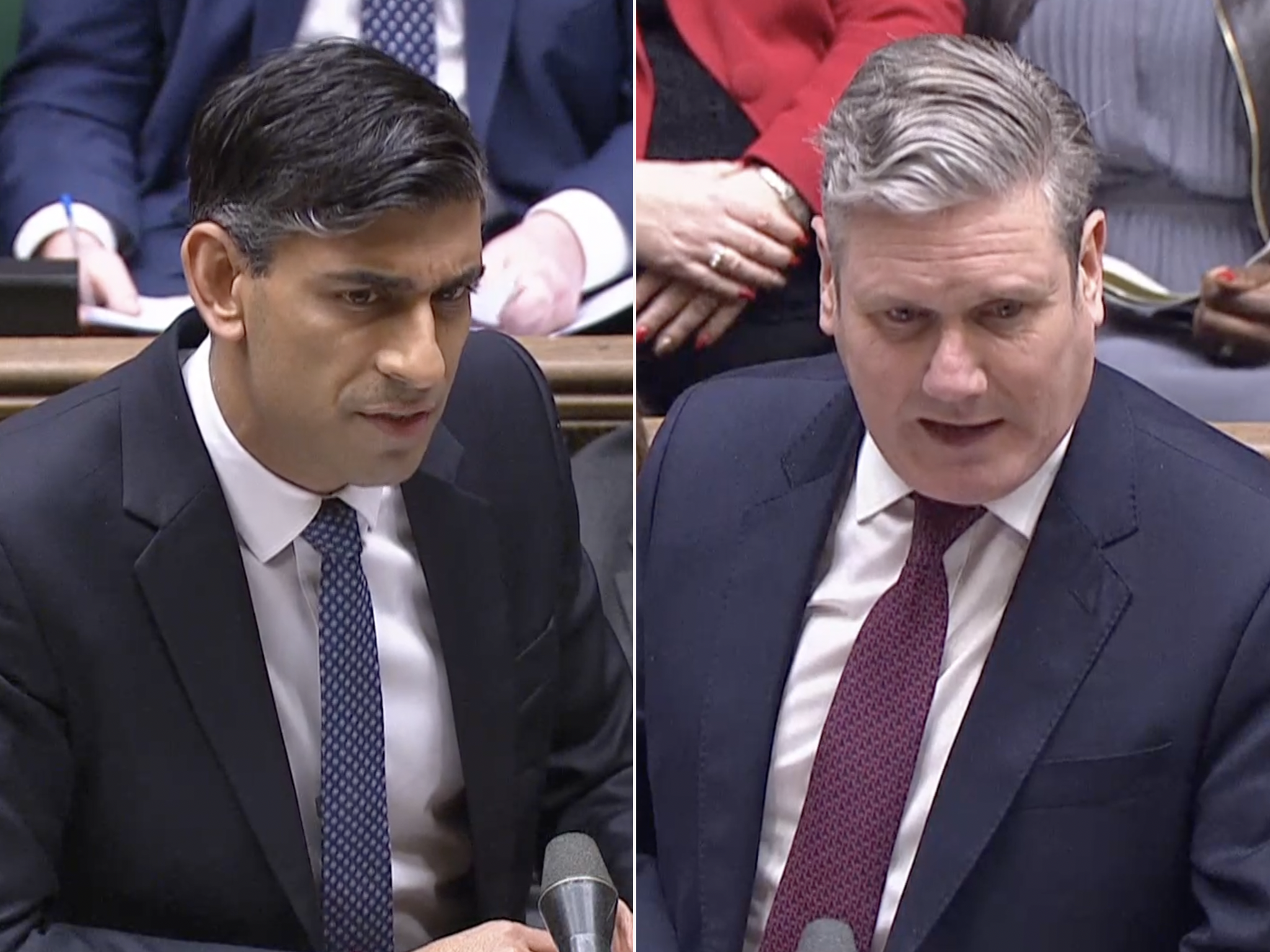Labour is setting the government’s political agenda
There was a time when the Tories championed ‘welfare-to-work’ and NHS reforms, and Labour was on the defensive. Now ministers run to catch up, writes Andrew Grice


Normally, ministers use the power of government to set the political agenda. But increasingly, Labour is making the weather, in a sign that the Tories are running out of steam after 13 years in office.
Shadow cabinet ministers were first to propose reforms to the NHS – amid the biggest crisis in its 75-year history – and to the welfare system, in order to encourage the long-term sick back into work. Labour frontbenchers tweak Tory tails by making their announcements to right-of-centre think tanks, which used to be policy factories for the Tories.
Wes Streeting, the shadow health secretary, told Policy Exchange that he will not “pretend the NHS is currently the envy of the world”, because it is “failing patients on a daily basis”. He wants “fundamental change” in primary care: all GPs would become salaried NHS employees, and no longer the “sole gatekeeper”, with patients allowed to self-refer to specialists.
Yes, it’s easier for Labour to be the critical friend of the NHS when many voters are not sure if the Tories are friendly towards it at all. Sajid Javid, the former health secretary, is standing down at the next election and so can now say in public what a lot of Tories think privately: he does not believe “the NHS will survive many more years” on its current tax-funded model, and wants an “honest debate” about alternatives, such as the systems in France and Germany.
That is code for taking a look at better-off people relying on private health insurance or paying charges for treatment, in what critics would inevitably brand a two-tier system and “back-door privatisation”.
Sunak’s allies insist he is in favour of NHS reforms; the government is drawing up a package that will likely scrap some top-down targets and give hospital managers more freedom. But some ministers think the prime minister has lost the appetite for public-service reform he displayed around the cabinet table as chancellor.
It’s in the “too difficult before the election” box now, as he tries to avoid alienating the various factions on the Tory back benches – particularly when legislation is needed. The prime minister has already backed down in the face of Commons rebellions over housebuilding and onshore wind, and another retreat – over the Online Safety Bill – will be along in a minute.
This week, Jonathan Ashworth, the shadow work and pensions secretary, told the Centre for Social Justice, set up by Iain Duncan Smith, that Labour would reform a welfare system that too often “disincentivises work” and makes it too risky for the long-term sick. Two days later, Mel Stride, the work and pensions secretary, floated similar ideas to reduce the number of people on sickness benefits.
There was a time when the Tories championed welfare-to-work reforms and Labour was on the defensive. Now, ministers run to catch up.
Streeting gets under Tory skins by winning plaudits in Tory-supporting newspapers. “We have ceded far too much ground to Labour,” one former minister told me. “We are not taking part in the battle of ideas.” Tory MPs grumble that Sunak will need much more than his five limited promises, saying he urgently needs to spell out a vision for the country’s future.
The Tories find it hard to oppose the sensible proposals coming from Labour. They have implemented the opposition’s call for the private health sector to be used to reduce NHS backlogs, and stolen policies such as a freeze on energy bills and a windfall tax on energy companies. All this makes it much harder for the Tories to portray Keir Starmer as a left-wing bogeyman.
Of course, Sunak must try, so he claims Labour is in hock to its “trade union paymasters”. Indeed, I suspect the primary purpose of this week’s legislation on minimum service levels during strikes was to create a dividing line with Labour, which will oppose it. This is not “reform” but a political device: users of many public services would welcome a decent minimum level of service on non-strike days. The law might even backfire by highlighting how bad the current level is.
In a classic case of bad timing, the legislation poisoned relations with the unions just when hopes of a compromise on pay were rising. The proposed law will not take effect for many months, and should not have been brought forward at such a sensitive time.
Ministers appear to regard the strikes as a political argument rather than a series of disputes that will have to be resolved sooner or later. Then, in theory, ministers could spend less time on firefighting and more on bringing forward fresh policies. Yet the Tory MPs hoping for radical reforms under Sunak shouldn’t hold their breath. The way Labour is setting the agenda is another sign that Starmer’s party has managed to turn the hourglass, leaving the sands of time running out for the Tories.






Join our commenting forum
Join thought-provoking conversations, follow other Independent readers and see their replies
Comments